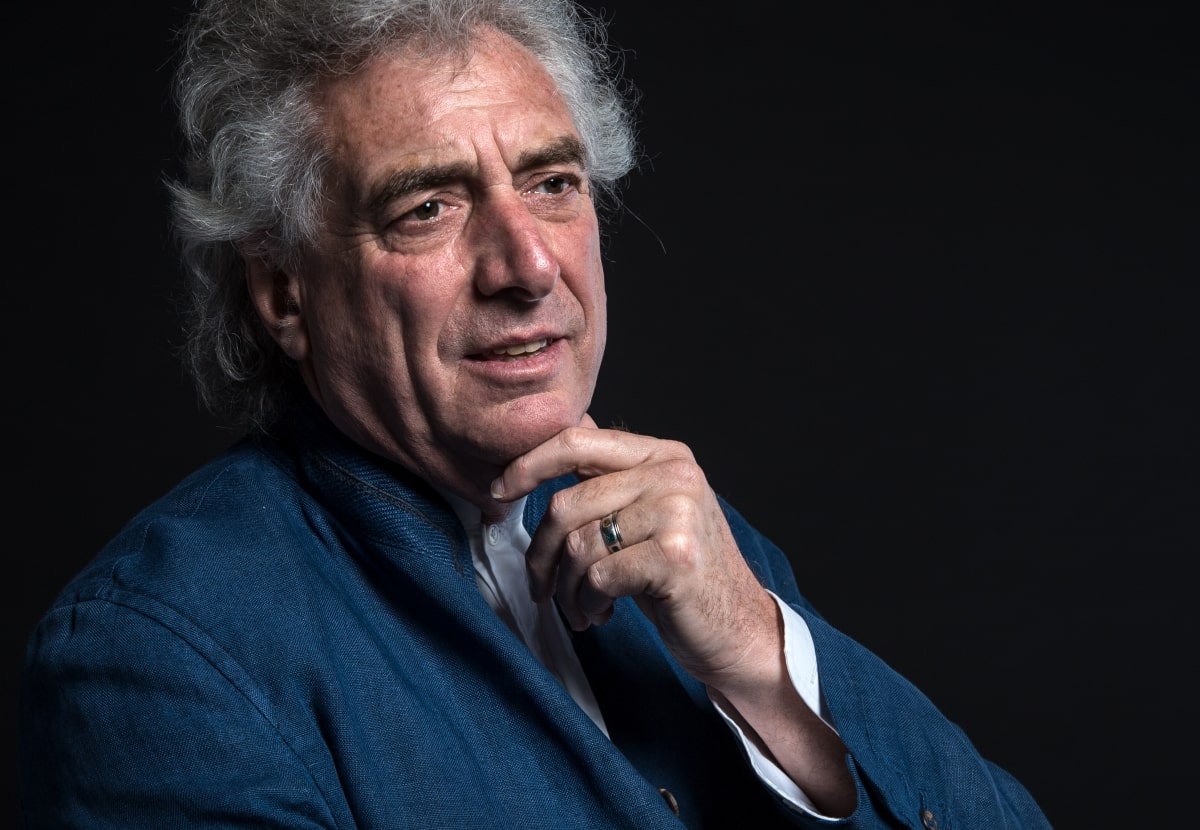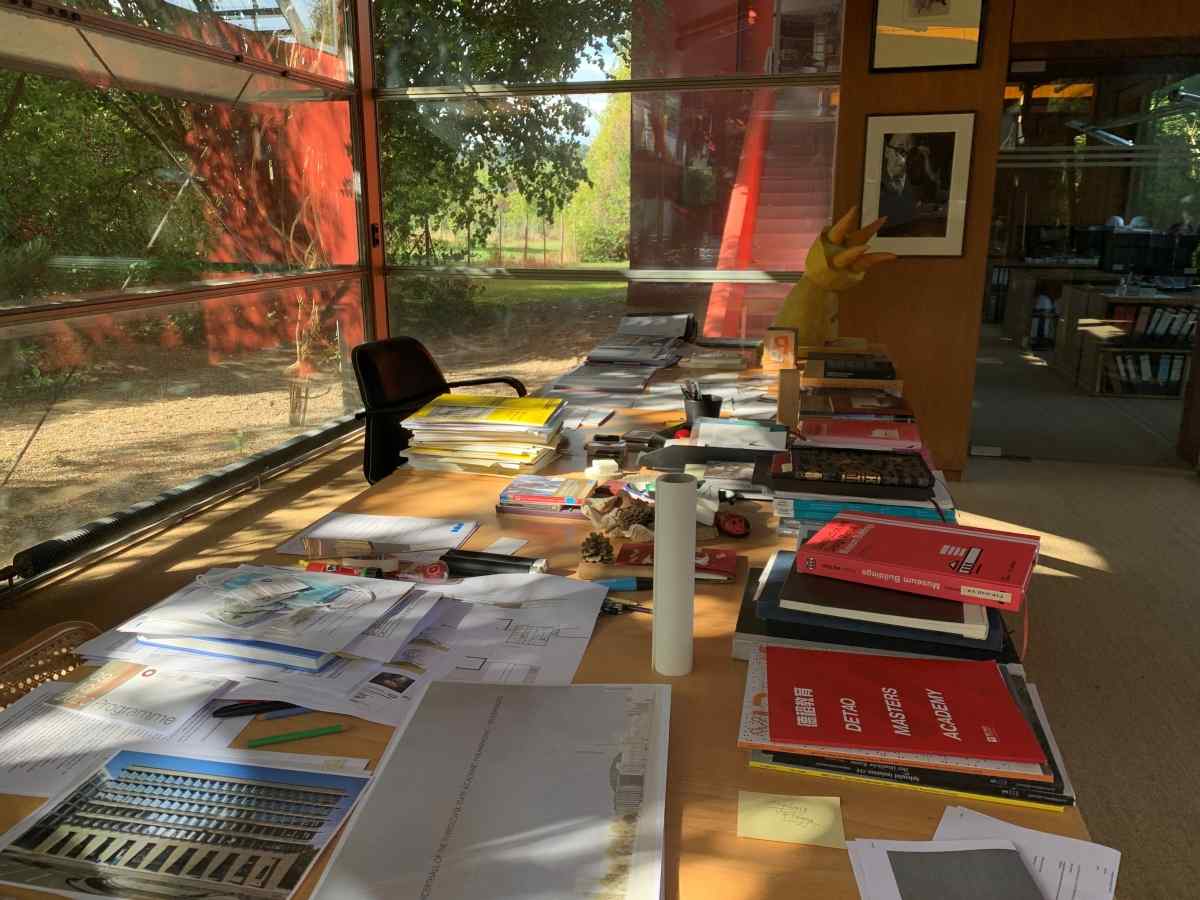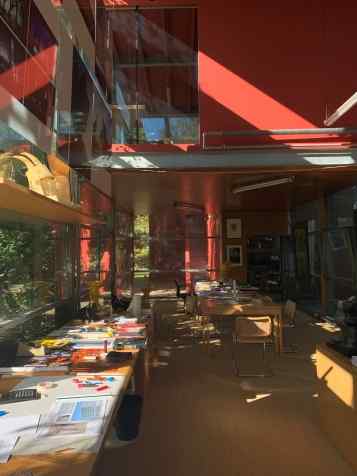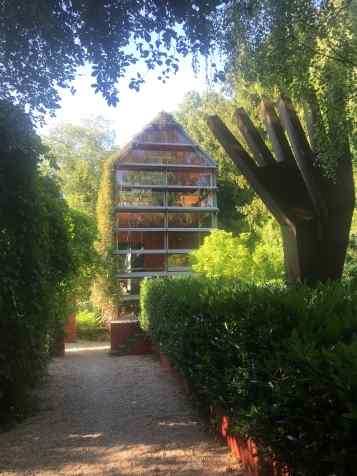In the heart of a forest in Remerschen, the architectural office of François Valentiny. A place conducive to achieving everything possible, to open-mindedness and creativity, but above all it houses, within it, an exceptional architect, an architect of convictions. Meet.
From Europe to Asia, you have been the architect of many landmark buildings making you a renowned architect in Luxembourg. Why did you choose to become an architect? What was your course ?
I think it makes sense. My father was a carpenter, so I was introduced to the profession very early on before I even trained for the trade by apprenticeship. However, basically I wanted to be a painter. But it was a solid artisanal training that formed me. The architect is above all a craftsman who must understand the daily problems of life.
I started with a technical engineer diploma from the Higher Institute of Technology in Luxembourg. Then I did a first year at the Nancy School of Architecture which, after 1968, was the most theoretical and avant-garde school in France. For a person who had an artisanal and pragmatic spirit, this atmosphere was not suitable, so I undertook trips. I discovered another world, notably in Vienna, the Alibaba cave of -rires- architecture. This is where I ended up studying, I was one of 9 out of 300 at the Universität für Angewandte Kurst.
In the 1980s, you brought a new lease of life to Luxembourg construction. How would you qualify your vision? Your art? How did you get there?
A city is nothing other than a beautiful loft and vice versa. In a defined space, functionalities must be guaranteed according to cultural and social parameters. Unfortunately today we talk too much about aesthetics but we do not do enough to make it dominate in our daily life because beauty has disappeared in many of our towns and villages. If architectural and urban beauty is not founded on a cultural and social basis, it does not interest me
The journey of my life pushed me to become an architect, of course, but it was also a choice because I wanted to change things. In the 1970s, as a conscientious craftsman, things certainly troubled me and even irritated me. All these defects in the constructions, the political lack of sensitivity also towards our heritage, our traditions, the destruction of our towns and our villages ... Luxembourg was destroyed and I was outraged! This period prompted me to start studying architecture.
Aesthetics in architecture have not been my priority since my second construction. What really matters to me now is how society works, how life together, the quality of everyday life. After all, doing architecture is my job, and aesthetic and technical issues shouldn't be a problem for me. The complexity begins with the spirit of the place "Genius Loci".
Houses, apartments, offices, sports facilities, art and culture to name a few, on your online showcase in particular, you will discover a long panel of references. Which of your masterpieces are you most proud of?
To answer that question, I would say you have to differentiate between what I personally like, what has allowed me to move forward and what is emblematic.
Some things appeal to me because they address issues that are close to my heart and that are successful because they are functional. When I go up to my village at the Bistrot Gourmand, for example, there is no longer the workshop my father carpenter and my neighbor blacksmith but the Wine Cellar of my friend Yves, whom I have known since my birth, is still there. The place in Remerschen that we have created meets the criteria perfectly for having the illusion of being in the center of things. It meets all the basic necessities and reflects a pleasant atmosphere.



